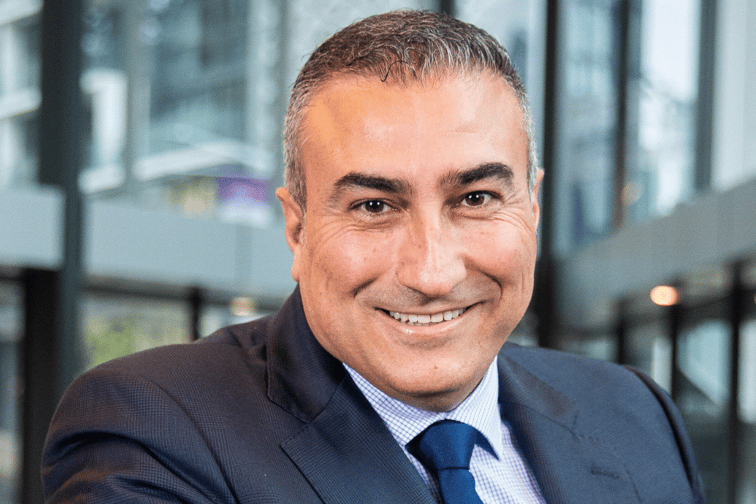

In the ever-evolving landscape of the mortgage broking industry, there is one crucial aspect that sets successful brokers apart from the rest: the power of customer retention and relationship building, says Pepper Money CEO Mario Rehayem.
While the allure of new deals and expanding customer reach can be tempting, it is the focus on nurturing existing client connections that truly makes a difference in building a robust and sustainable mortgage broking business, he says.
“The beauty about mortgage broking businesses is that you all offer the exact same products,” said Rehayem (pictured above), who was speaking at Pepper Money’s latest Insights Live event last week. “No one has a better product. The only differentiation between the product you are offering is actually you. Your service, your business model, and your strategy.”
An industry veteran with more than 20 years of experience, Rehayem said he had observed a fundamental shift in the mindset of mortgage brokers.
“I have seen broker offices that write in excess of $150 to $200 million a month and those that write $2 million to $5 million per month. Success does not mean the volume you write, success is dictated on how you have set it up,” Rehayem said.
“What did you want to achieve and are you delivering the right outcomes for your customer? The best business model is not just chasing new deals. The best business model has the customer front and centre in their business. It’s not a transaction that is all front ended.”
Clawback is one of the mortgage industry’s most debated and contentious issues, with continued calls for it to be scrapped.
While Rehayem has joined this chorus, saying he “hates it” and “hates issuing it out”, he understands that it is part of the industry.
However, Rehayem said that the level of control over clawback could be influenced by the strength of the broker-client relationship and how much “you try to soften and slow it down”.
“Some of the offices I’ve visited have a really strong customer focus, post-settlement care, and are constantly engaging with their customer base. You will never ever hear them talk about clawback because they build a level of respect and connectivity with their customers that gives them the actual right for that customer to call them before they engage,” Rehayem said.
“The number one rule has always been customer retention. How much energy are using to spend with your customers?”
Rehayem said that many brokers often thought it was “wasted effort” but it was “actually quite the opposite”.
“Spending more time with your customers will build you a better network of customers and they will produce referrals, new business over and over again. It’s incredibly important.”
The next crucial step for brokers, according to Rehayem, was to invest in their business strategically.
This involves critically evaluating their processes, identifying gaps, and seeking opportunities to enhance efficiency and service delivery.
“These are the things that will separate and differentiate you from your peers. Like I said, you have access to the same products as those that you may deem as your competitor or those in the network.”
Rehayem shared a valuable case study that highlighted the importance of understanding one's business placement.
“Around five years ago, we ran a session with some analysis with brokers. One of the biggest things we came across was we used to rock up to the broker offices and they would say ‘we don’t see that type of business, not here’,” he said.
The Pepper Money team then sat with these brokers and showed them the number of mortgages that were registered to the non-bank lender in the vicinity of their office.
“Now some of those brokers were on the receiving end of that and significantly shifted their business. What they didn’t realise was that the network that they had was a very small sliver of what the community actually was,” Rehayem said.
“Understand the community that you operate in and compare it to your customer base. What customer cohort are you missing out on? Because these are opportunities – the nuggets that you have right in front of you that you are not seeing because you are focused in one particular area.”
Rehayem said it was important for brokers to adopt an "always-on" strategy, because continually seeking new opportunities, prospects, and customers was essential for growth and sustainability.
However, the success of the hunting part relies heavily on the processes put in place to serve customers to the best of their ability and retain them.
“Don’t be just a mortgage broker that does a transaction and disappears. Be a part of their financial journey,” Rehayem said. “If you do that, I guarantee you that you will have a very robust business.”
What do you think of Rehayem’s strategy? Comment below.
